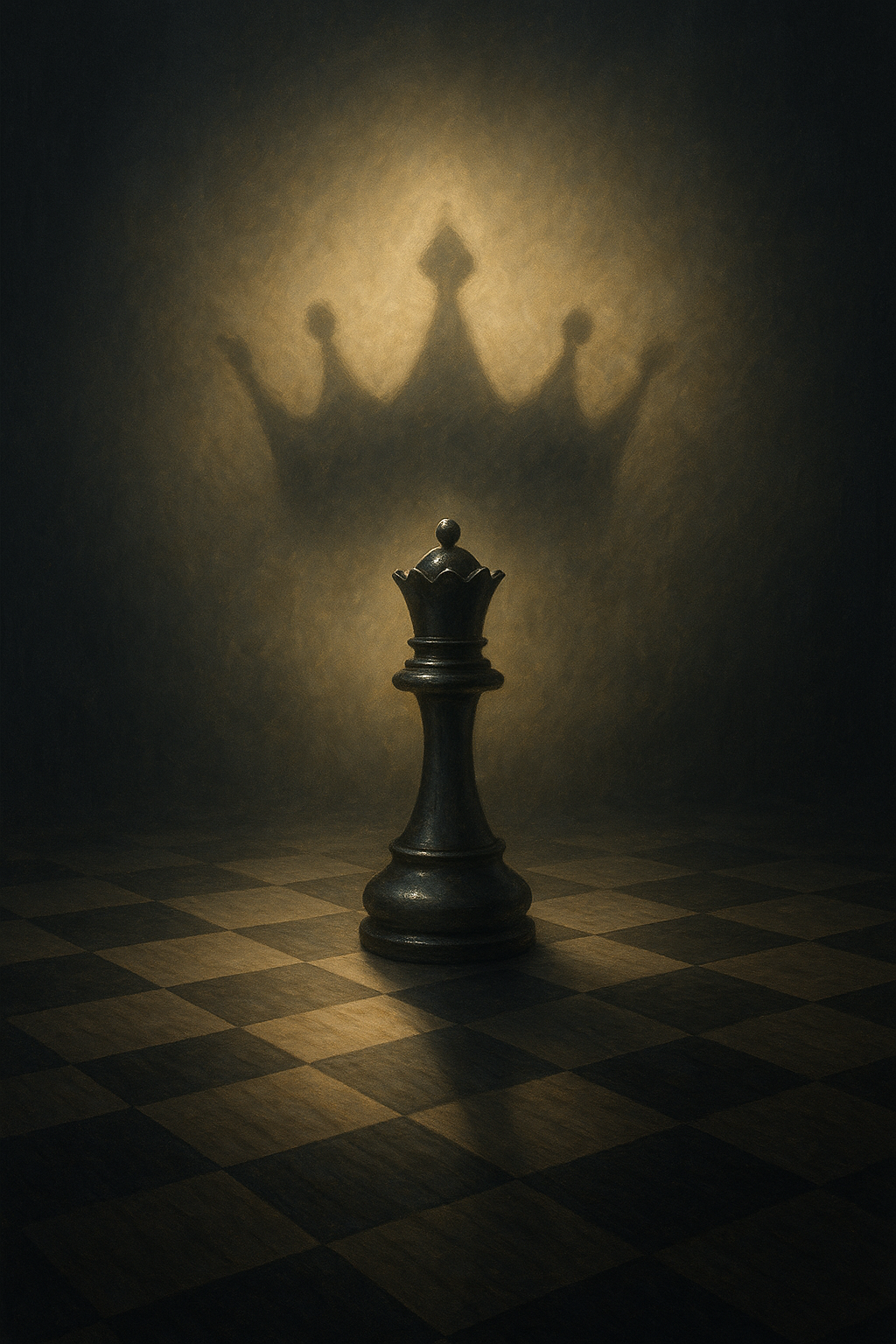In the silent geometry of the chessboard, the queen stands as both majesty and paradox.
She can move anywhere — horizontally, vertically, diagonally — an infinite reach within finite limits.
She is power embodied, yet her freedom conceals a weight: the burden of possibility.
♟ The Queen as Power and Pressure
The queen is the most capable piece, but her strength can become her snare.
When used too early, she becomes a brute force algorithm — striking at everything, everywhere, driven by capacity rather than clarity.
She exhausts her range without purpose, like a mind that tries every path without understanding the pattern.
Because I can, I must.
Because I have reach, I must touch everything.
That is the creed of brute force — in algorithms and in life.
It is the method of the overextended, the impatient, the unpatterned.
It works, eventually — but at immense cost.
🧠 Brute Force and the Burden of Effort
In computing, a brute force algorithm is simple:
it tests every possible combination until the answer appears.
It is certain, but slow.
It is strong, but ignorant.
It mistakes movement for progress.
Humans fall into the same loop.
We use effort to compensate for lack of insight.
We live by trial and error, carrying emotional weight the way machines carry computational load.
Our fatigue becomes a kind of tax on our unrefined wisdom — the burden of doing everything manually.
The result is the same: exhaustion without elegance.
👑 The Queen’s Wisdom: Power with Pattern
The great player does not unleash the queen in chaos.
He waits.
He builds a structure — pawns claiming space, knights weaving nets, bishops forming diagonals.
Only then does the queen move — not from desperation, but from design.
That’s the human lesson too.
Power becomes beautiful only when it’s patterned.
Effort becomes art only when guided by insight.
The queen’s restraint is her intelligence.
Her timing, her symmetry, her awareness of the whole — that is what transforms strength into strategy.
The wise do not act because they can;
they act because the moment calls for it.
🔹 Insight
A person who lives without reflection or optimization operates like a brute force algorithm:
they throw energy at every possible path until something works.
Over time, this creates burden — the emotional equivalent of computational overload.
Whereas a wiser algorithm — or person — uses heuristics, intuition, and pattern awareness to find efficient paths.
This is where growth and freedom begin: when you stop trying everything, and start understanding something.
⚖️ The Table of Parallels
| Aspect | Brute Force | Burden | Queen |
|---|---|---|---|
| Nature | Tries everything | Carries everything | Can do everything |
| Energy | Exhaustive | Heavy | Expansive |
| Weakness | Inefficiency | Fatigue | Overexposure |
| Wisdom | Optimization | Balance | Integration |
| Ideal | Insight | Rest | Coordination |
🪶 Reflective Summary
A brute force algorithm carries the burden of ignorance —
it does not know, so it must try everything.
Wisdom, in contrast, is the art of reducing the search space.
The queen’s power is not in her reach,
but in her restraint.
When she moves with purpose, the whole board breathes.
When she moves without pattern, she becomes her own burden.Even brilliance, without structure, is just another brute force.
The game — like life — rewards not the one who does most,
but the one who sees clearest.

Leave a Reply